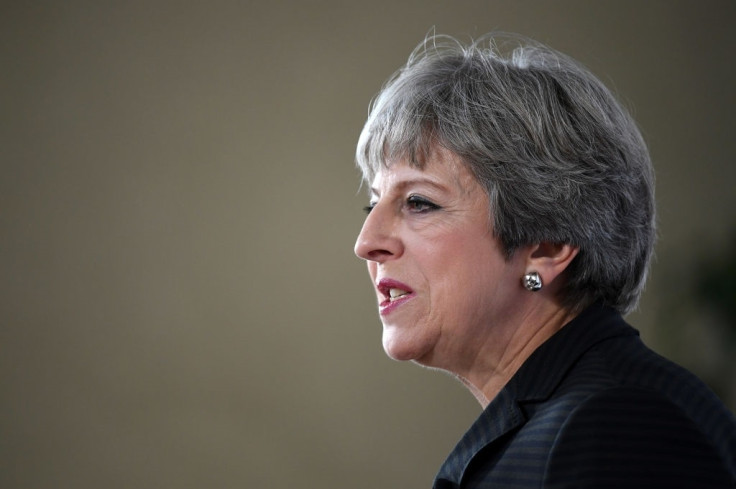Defiant Theresa May refuses to apologise for botched general election gamble
Prime minister said it is never a mistake to give people the opportunity to vote.

Theresa May has refused to apologise for calling the general election that saw the Conservatives lose their majority and force them to be propped up by the DUP.
Speaking ahead of her party's conference in Manchester, the prime minister admitted her campaign failed to get its message across – but insisted calling the vote was not a mistake.
"Is it ever a mistake to give people the opportunity to vote? I don't think so," she told the Andrew Marr Show. "At the stage of course I wanted to see a different result and I hoped for a different result from that general election.
"But what we must do now is learn from that general election and take those lessons forward. That's what I'm doing, that's what government is doing.
"I think the key message from that election for me, one of the key messages was we didn't get across was what we were doing in terms of a county that works for everyone and really wanting to build on that.
"I think what we also saw from the election is that as conservatives the arguments that we thought we'd had and won during the 1980s about the importance of free market economies.
"I think we thought there was a general consensus on that and we can now see that there wasn't and we now need to make these arguments again."
The Conservatives went into the election with a 20-point lead over Labour, but a disastrous campaign and U-turn over the so-called "dementia tax", as well as Labour popularity with younger voters, eroded that advantage.
The loss damaged May's authority as prime minister leaving her clinging on to the keys to Number 10. She said she took responsibility for the outcome.
"I've been very clear that I called the election, I led the campaign, I take my responsibility and I'm sorry that some very good members of parliament lost their seats and some very good people who were candidates did not gain their seats.
"What you'll hear from us this week is how we are going to move forward, address the issues that are of real concern to people and we're going to build that country for everyone.
"Throughout my entire life I have worked for the Conservative party and I know people who went out during that election who worked really hard and I'm sorry the result wasn't the one all of us wanted.
"There's going to be a lot of analysis of the election because if you look at it we got 2.3 million more votes, we had our highest vote share for over 30 years, we took seats we didn't think we were going to take, we got more members of parliament in Scotland and yet we didn't get that majority."
In a bid to win back young voters, the Conservatives have announced a freeze in tuition fees and a rise in the threshold of how much graduates earn before they pay debt back.
Students will only start paying back student debt once they earn £25,000 or more, up from £21,000, which gives them £30 extra a month in their pockets.
The prime minister also pumped an additional £10bn into Help to Buy that will see the house buying measure continue into 2021.
On Brexit, May said her Florence speech had eased tensions with EU leaders. "I did have a private meeting with Angela Merkel, I also had the opportunity to speak to other EU leaders as well and I certainly got the impression and was being told that they welcomed the Florence speech, that the Florence speech had give momentum to the negotiations.
"It's not just leaders who have said that and actually if you look at what Michel Barnier said at the end of the week he was very clear that speech had changed things and I think negotiations over that week were conducted in a more positive framework in a more constructive framework."
© Copyright IBTimes 2025. All rights reserved.






















